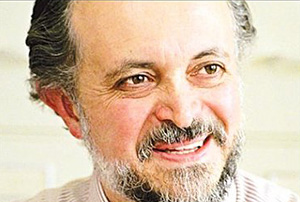 |
 |
 |
 Editorials | Environmental | June 2007 Editorials | Environmental | June 2007  
Climate Change: Nobel Laureate Calls for Post-Kyoto Treaty
 Diego Cevallos - Inter Press Service Diego Cevallos - Inter Press Service


| | Nobel chemistry laureate Mario Molina |
Mexico City - Large developing nations like China, India and Mexico should sign a new international treaty to curb climate change which must include economic penalties to clamp down on emissions of greenhouse gases, Nobel chemistry laureate Mario Molina said Wednesday.

The necessary changes can only be brought about through an agreement that "puts a cost on emissions" and includes large emerging countries like China, whose emissions will soon match those of the United States, said the Mexican scientist.

Molina gave his talk at the opening of the "Climate Change and the Media" seminar organised in Mexico by the United Nations Development Programme (UNDP) and the Inter Press Service (IPS) news agency, as part of an agreement for disseminating information on the Millennium Development Goals (MDGs), which were adopted by the international community in 2000.

"Developing countries have the right to expand their economic growth, but not the way the industrialised world did things, by damaging the environment," said Molina. "If they do that, we will need another planet."

That is why a post-Kyoto accord is necessary, he said, referring to the 1997 Kyoto Protocol to the United Nations Framework Convention on Climate Change, in which industrialised nations agreed to specific targets for reducing greenhouse gas emissions.

Both developed nations and large emerging nations must sign this new accord, which should set binding targets and rules and include costs for those who fail to comply, argued Molina.

He lamented that the United States was not a signatory to the Kyoto Protocol, but welcomed the fact that the U.S. government had "finally" recognised that the phenomenon of climate change exists and that measures are needed to combat it.

The research carried out by Molina since the mid-1970s on clorofluorocarbons (CFCs) formed the basis of the Montreal Protocol, signed in 1987 with the aim of protecting the ozone layer by phasing out the production of a number of substances believed to be responsible for ozone depletion.

The Montreal Protocol was the first major international environmental treaty, which according to Molina could serve as an example for the creation of a binding post-Kyoto agreement on climate change.

If emissions are not curtailed, global temperatures could rise by three degrees Celsius over the next few decades, which would lead to severe problems for humanity. According to Molina, the challenge is to adopt measures to keep the increase from exceeding 2.5 degrees.

Summing up the views of fellow scientists, he said that after the industrial revolution, the planet entered a new geological era, the Anthropocene, in which humans have come to rival nature in their impact on the global environment.

Over the past century, average temperatures have increased nearly one degree Celsius. But 75 percent of that rise has occurred in the last three decades alone. The growth rate of carbon dioxide concentration is today 200 times higher than at any other point in the last 650,000 years.

The WWF's Living Planet Report 2006 said humans' "ecological footprint" - the demand people place on the natural world - was 25 percent greater than the planet's ability to provide food and energy and recycle human waste.

"On current projections humanity will be using two planets' worth of natural resources by 2050 - if those resources have not run out by then," the report added.

Molina urged the media to inform global society about what will happen to the planet if the current forms of generating energy are not modified, and if actions against climate change are not taken.

"The media play a very important role in this task," he said, after congratulating the UNDP and IPS for organising the seminar, which was attended by journalists from several different Mexican states.

UNDP resident representative in Mexico, Thierry Lemaresquier, said that working with IPS is important for the U.N. agency "because we are in enormous need of intelligent and persevering support from the media on an issue (climate change) in which science, politics and personal views are mixed together."

Molina said pressure from society, fomented by the media, is essential to ensure the signing of new international climate change treaties that include large developing nations.

If the Chinese economy continues to grow at an annual rate of eight percent, in a couple of decades it will be consuming most of the available oil and global grain production will fall short, said the 1995 Nobel prize-winner.

China, as well as other emerging powers like India and Mexico, must adopt climate change commitments, he underlined.

Tackling the problem requires multiple measures, such as increasing the use of nuclear, wind and solar energy sources and improving energy efficiency in the transportation and building sectors, he said.

"We already have the technology to do that, we just have to make use of it," he said.

Enrique Left, director of the United Nations Environment Programme (UNEP) in Mexico, said the planet is in the midst of a "crisis of civilisation" because of the total disconnect between "the economy and nature."

Not only are specific measures needed to improve energy efficiency and prevent deforestation; what is needed is a new way of living, he argued. | 
 | |
 |



